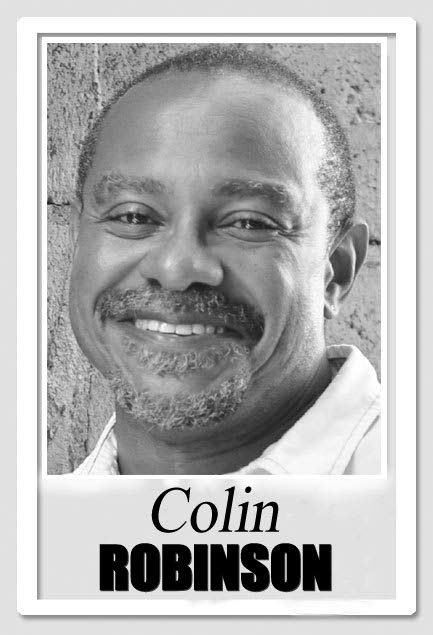Protecting deviance

It was so refreshing to read the January 16 asylum determination letter from the UK’s Secretary of State — a country that’s made indirection and allusion into art forms — addressed to someone we still twist-up ourselves here to call the CJ’s “close friend,” setting out bluntly in black and white the claims Dillian Johnson has made about our Chief Justice.
I’m warned even quoting that bit of the document is a court case. So our national reporting and public discourse about these affairs continue to be mired in insinuation and innuendo. In picong and ole mas. When serious matters of ethics and governance are at stake, both of those speech forms are de rigueur. But when our only discourse about an issue is required to take place in language thick with intrigue and politics, that’s precisely how we avoid holding others accountable — by ensuring the matter remains in the realm of bacchanal.
Suing his way into last year’s Dimanche Gras, Duane O’Connor placed seventh, claiming bacchanal is indeed one of the things our media’s front pages are reserved for. No Front Page chronicled heroes who ought to be there instead of incidents like “when the CJ allegedly stretch he hand to pull strings to get a house for he man.”
This year, four Skinner Park calypsonians put the CJ in their mouth. Jelanie Wells’s Ah Tippin had several tips, including one for the CJ: to distance himself from LGBT issues lest he be seen as toting their weight. Tobago Chalkie’s tongue-in-cheek Travel Advisory painted a rosy picture of TT for visitors, including gays and lesbians, despite the media’s “evil” treatment of Michelle-Lee Ahye, and attacks on the CJ, in whose case we’d “live to see a big sign there mark ‘No Entry’.”
Chalkdust made yet another declaration about not demitting competition in They Put Meh So, committing to sing “till all dem judges and lawyers daily stop hounding out Chief Justice Archie. No court ever rule that Archie guilty of anything nasty. So, to defend the black man's ego, I must sing kaiso.” The Judiciary and CJ also featured in Kurt Allen’s Wah Yuh Say — the only of the four to make it to Kaisorama and, like O’Connor, seventh place.
Initially, Allen cleverly invoked the CJ’s outspokenness on small charges for marijuana, in contrast to LGBT stigmatisation; but in the final switched this to a non sequitur: “Old people say to each his own. The Judiciary disagree with this verse. Archie say: Legalise LGBT first” — a matter on which I don’t believe he’s ever gone on record.
Archie remained silent.
But when the ole mas reached the Hall of Justice steps, Peter Jamadar, acting CJ in Archie’s absence, decided to judge it.
Timed to coincide with the schools-focused traditional Carnival character celebration in Woodford Square, while his outspoken critic Justice Carol Gobin happened to be walking by, a dozen disguised persons mounted the steps of the Hall of Justice with placards making ole mas on several issues surrounding the CJ and Judiciary. One media house played its own mas, deeming them “unprintable” while publishing a photo of six.
Jamadar’s press release — a torturously grey statement about freedom of speech and its limits, urging “temperance” against “unwarranted, crass and demeaning criticisms” — landed badly, in the wake of several contested ones from Archie on the very matters the ole mas was playing.
PNM minister Fitzgerald Hinds quickly jumped up too, attributing the performance to “the marauding UNC.”
“More ole mas, as two judges break ranks with Judiciary's statement,” a new headline quickly followed, as Frank Seepersad, joined by Gobin, countered Jamadar: Office itself is not a shield from picong. “Respect for high office cannot be demanded, it has to be earned” and we must not “subvert freedom of expression premised upon any misguided perception of untouchability, entitlement or privilege.”
I couldn’t agree more. Defending Rachel Price five years ago, I wrote, “The very notion of dignity of office is grounded on the indignity of unimportant people, who are roped out of the numerous “VIP sections” of our national life. … Until we create a suite of national institutions that protect and promote the dignity of all of us, I’m afraid the President doesn’t get to use the one he inhabits to ensure his wife doesn’t get heckled for an ugly dress.”
Terrence Farrell disagreed, voicing the same fear I encountered everywhere after our sodomy judgment — that Caribbean people cannot be responsible with freedom, that it leads to licence and licentiousness; that without authority, “we descend into the abyss of anarchy.”
But Seepersad and Gobin turned a corner, leaving me behind, invoking an “obligation to ensure that we conduct our professional and personal lives in a manner which is devoid of deviance.”
Deviance? That’s precisely what picong and ole mas are. And why courts protect them as free speech.


Comments
"Protecting deviance"